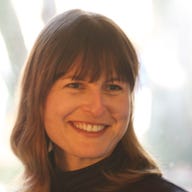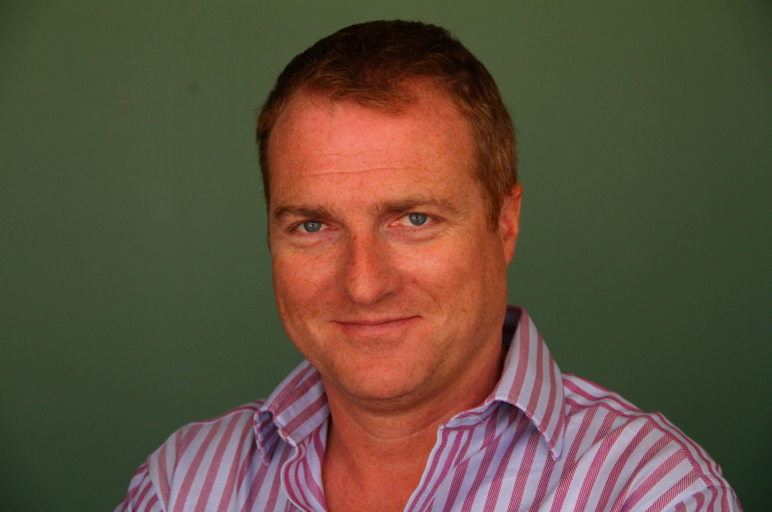'Curiosity' attempts to answer universe's biggest questions


In an attempt to answer some of the most pressing questions on the planet, Discovery Channel will launch its Curiosity series this Sunday, pairing some big names with big questions.
The five-year, 60-episode projects was created by Discovery Communications founder and chairman John Hendricks. Questions will delve into science, technology and society to answer mysteries such as what it would be like to live forever, why we dream, whether some people are genetically prone to violence and if time travel is possible.
Hosts and topics include:
- Stephen Hawking asking whether God created the universe;
- Robin Williams studying what drugs do to our bodies;
- Samuel L. Jackson surveying how the world might end;
- Brendan Fraser surveying what lies beneath Egypt;
- Eli Roth testing the nature of evil;
- Maggie Gyllenhaal exploring why sex is fun;
- Morgan Freeman exploring the possibility of a parallel universe;
- Michelle Rodriguez asking how we might survive an alien attack;
- Morgan Spurlock experimenting to see if living as a caveman would improve our health;
- Adam Savage (MythBusters) testing to see if we can really live forever; and
- Mike Rowe (Dirty Jobs) revealing the hidden liven organisms in our bodies.
Last week I spoke with senior vice president of development and production Simon Andreae about creating Curiosity. He said one of the most challenging questions to portray was in the episode, “Did God Create the Universe?” since it’s a show hosted by a man who can’t talk (Hawking), with another personality who many would argue doesn’t exist (God). Excerpts of our conversations are below.
How did the idea for this show come about?
The concept was conceived by John Hendrix, our founder. Two to three years ago he wanted to do a series whose whole purpose was to provoke and satisfy curiosity. Over the last year and a half we’ve been narrowing down the questions—the broadest, deepest and most varied, and those with which we could pair a host. And our search for hosts led us down three avenues—Stephen Hawking, our own talent and the larger Hollywood community.
People are curious about a lot of things. How in the world did you narrow down the questions?
We spoke with John about the sorts of topics he felt were most deserving, and they generally fell into three categories, or buckets: ourselves, our world and our place in the universe. So in the “ourselves” bucket we wanted to do two to three in the area of psychology, genetics, and so on. In the “world” bucket, we wanted to cover history and geology. And for our place in the universe, the biggest one of all is, Did God Create the Universe with Stephen Hawking.
In the episode about human sexuality, Maggie Gyllenhaal looks at the latest work into the human orgasm and the possible connection with reproduction. And in Martin Spurlock's show, he explores whether modern technology and fast food restaurants and so on have changed us fundamentally.
In production, what are the questions that were hardest to portray. It’s one thing to discuss these topics, but to show them on the screen…
I suppose the most challenging was the first one, Did God Create the Universe with Stephen Hawking. It’s a show hosted by a man who can’t talk, with another personality who many would argue doesn’t exist, so that was pretty hard. In the “Better off than Cavemen” episode, we wanted to look at not-very visible things. The idea there was to create a social experiment where Morgan tried to live like a caveman going back in time. On one level you can’t do that. But we replicated the environment pretty actually and he traveled back in time. But at the same time, the impact of modern medicine on human aging is a fascinating topic but not the best for TV. So we decided not to do that and instead to throw Adam forward about 940 years in “Could you Live Forever,” and he looks back as the first 1,000-year-old man.
What question is most interesting to you personally?
I’m really proud of and fascinated by all of the shows, especially that we get to ask the biggest question of the universe in the heart of prime time. If we have to call out one film of which we’re really extra proud—and I don’t even really like to answer that question--I’d have to say Did God Create the Universe. Because it’s the biggest question of all; the physics behind it are pretty complex; and because we’re aware it will ignite debate and not everyone will agree with that point of view. It’s across nearly every network that we own, followed by a discussion.
Were there disagreements during production about some of the details of how a particular question would be answered?
Yes, but not bad disagreements, no more than what you’d have normally during the process. It’s a matter of whittling down the most effective way of telling a story. Some episodes are based more around specific research than others.
We haven’t fallen out with anyone. And from the beginning, asking the hosts what big questions they would like to explore—big movie stars with busy schedules—we were met with great enthusiasm. It’s going to become a platform where the world’s biggest scientists and best movie stars get to engaged with a topic that really interests them.
You conducted some research with your audience and at universities to find out the foremost questions. Are these questions generally the same for scientists and the general population?
I’d be really interested to know.
This post was originally published on Smartplanet.com